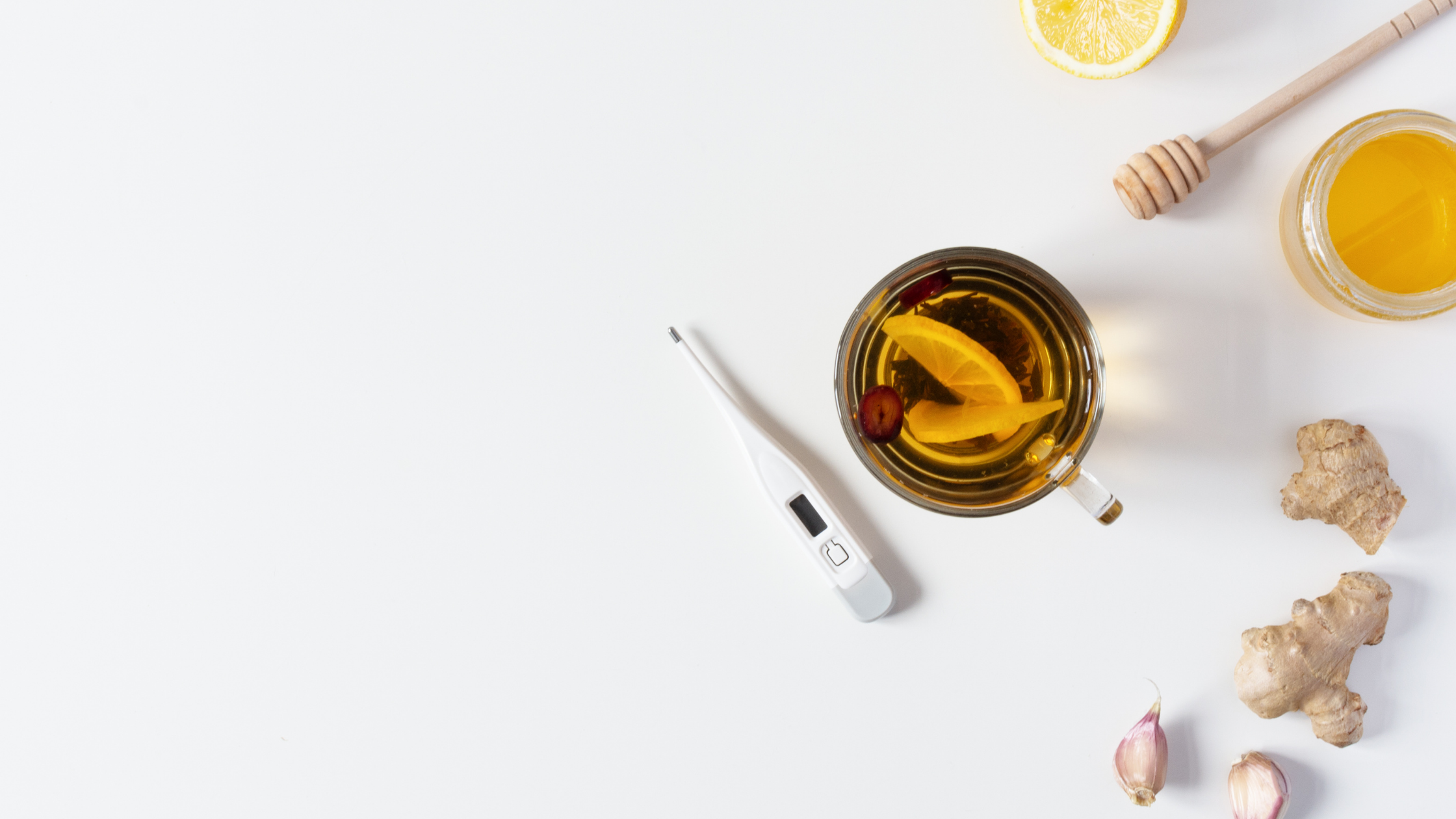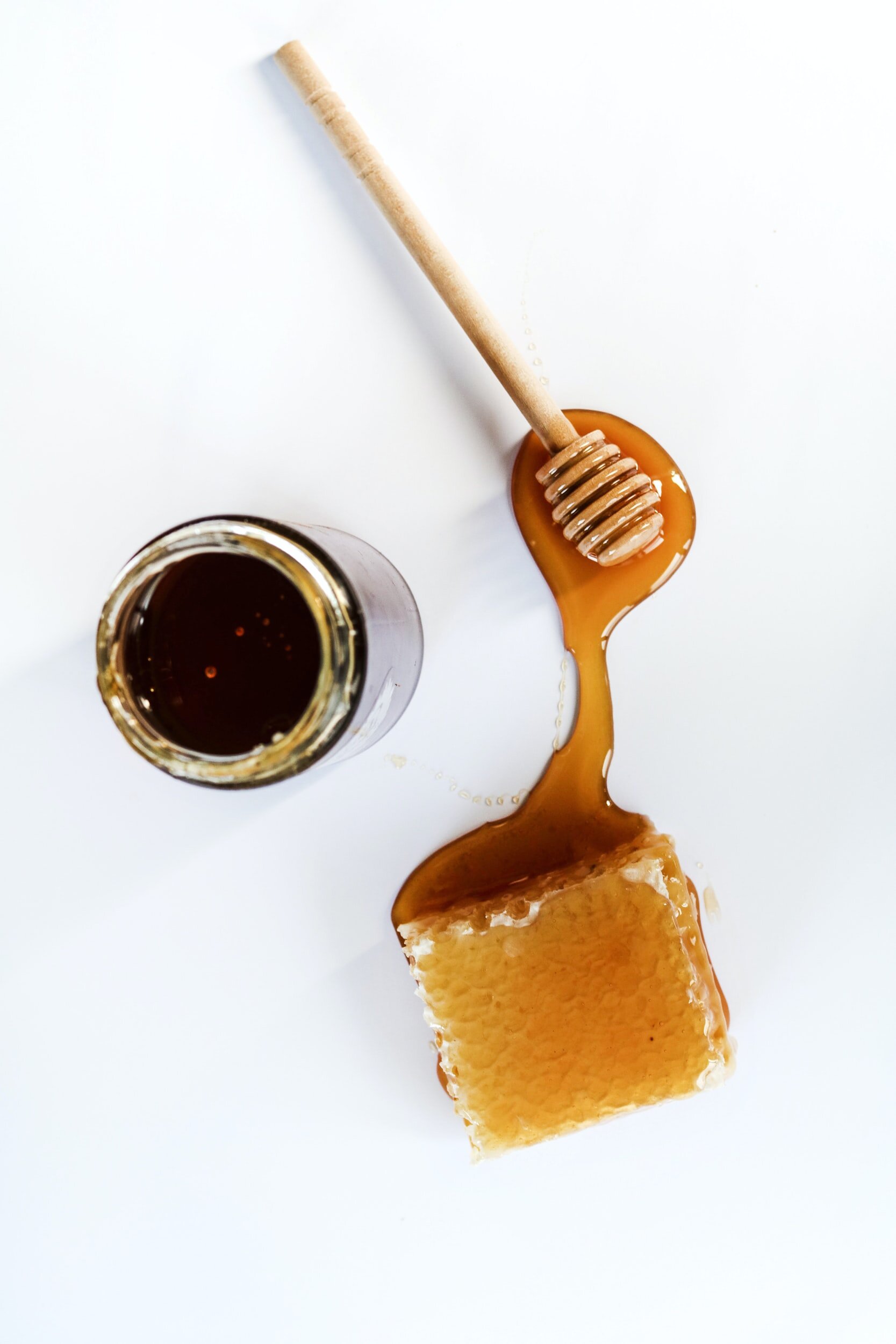10 ways to stay on track with your singing with Stacey Jane THE VOICE COACH
10 ways to stay on track with your singing | Stacey Jane THE VOICE COACH
These tips will help you focus, get back on track if you've lost sight of your goal and remind yourself why it's important that you succeed.
It can be tough to stay focused in a world that is constantly buzzing with distractions.
From the moment we wake up until the time we go to bed, there are countless things vying for our attention. For creatives, this can be especially challenging. It's hard to stay focused when your mind is constantly jumping from one thing to another.
Here are 10 ways to help you stay on track with your singing and help you stay aligned on your vocal journey.
1. Set aside designated times for practice. Whether it's an hour before work, during your lunch break, or in the evening, try to carve out specific periods of time when you can focus on your creative projects without being interrupted.
2. Eliminate constant notifications from social media and other apps. Constant notifications can serve as a major distraction, so turn off any notifications that are not absolutely necessary.
3. Create a focused practice space. Keep it tidy and organised
4. Turn off your phone or keep it out of sight when you're working on a project. This will prevent you from getting distracted by notifications and checking your messages constantly.
5. Prioritize your tasks so you can focus on the things that matter most. If there are several projects that need your attention, try to rank them in terms of importance so you can focus on what's important first
6. Take frequent breaks to refresh your mind. Spending too much time on a song can actually make it harder to focus, so take short breaks every hour or two to give yourself some time away from your music.
7. Stay organized and focused with the help of productivity tools like task lists, calendar reminders, and timers. These tools can help you stay on track and stay focused on the task at hand.
8. Train your mind to resist distractions. One way to do this is through mindfulness meditation, which can help you focus more easily on your work when distractions arise.
9. Connect and work with like-minded creatives who can serve as a source of inspiration and support. Surrounding yourself with others who are working toward similar goals can make it easier to stay focused and get things done.
10. Remember that progress takes time, and try not to beat yourself up when you don't meet your goals right away. It can take some time to develop the habits and mindset needed for laser focus, but with practice and persistence, you can do it!
So if you're looking for ways to decrease distractions and create a laser focused mind for your creative pursuits and singing, try some of the tips above.
With practice and persistence, you can stay focused on your singing no matter what's going on around you!
Stacey Jane
THE VOICE COACH
3 Bad Habits That Are Keeping You From Becoming a Better Singer
Wanna become a better Singer?
Here are 3 Bad Habits that are stopping you from becoming a better singer!
If you're like most singers, you probably want to get better but don't know how. You may feel like you're doing everything right, but somehow you're not making the progress you want. In this blog post, we will discuss three bad habits that are keeping you from becoming a better singer. If you're guilty of any of these habits, it's time to break them and start seeing results!
Habit #1
Not practicing regularly
One of the most important things you can do to become a better singer is practice, yet so many singers neglect this crucial step.
If you're not practicing regularly, you're not giving yourself the opportunity to improve. Make a commitment to yourself to practice at least four times a week, and you'll start seeing results in no time.
Habit #2
Not Recording yourself
Not recording yourself:
Another habit that is holding you back from becoming a better singer is not recording yourself. It's important to hear yourself sing so that you can identify areas that need improvement, and I know it can be really hard to listen back to yourself, but you have to learn to love your voice and what better way then to listen to it, also If you're not recording yourself, how will you know what needs to be worked on? Make a point to record yourself at least once a week and listen back with an open mind.
I always have every student I work with record their lesson with me so they can listen back throughout the week for a reminder on what to work on, to monitor their progress and also so they can get used to listening to their own voice.
FEEDBACK
Habit # 3 Not seeking Feedback on your singing
Not seeking feedback: The final habit that is keeping you from becoming a better singer is not seeking feedback. It can be difficult to hear constructive criticism, but it's essential if you want to improve. Find a trusted singing teacher or coach who can give you honest feedback and help you make the necessary changes to improve your singing.
If you're guilty of any of these habits, it's time to break them and start seeing results! Habits are hard to break, but if you're committed to becoming a better singer, it's worth it. Make a plan to correct these habits and start seeing the progress you've been wanting.
I hope this blog post has helped you to identify some of the habits that are holding you back from becoming a better singer. Remember, Habits are hard to break, but if you're committed to becoming a better singer, it's worth it. Make a plan to correct these habits and start seeing the progress you've been wanting.
If you have any questions or would like help breaking these bad habits, please don't hesitate to contact me. I'm always here to help! :)
Habits are hard to break, but if you're committed to becoming a better singer, it's worth it. Make a plan to correct these habits and start seeing the progress you've been wanting.
Stacey Jane
THE VOICE COACH
Should you sing when you are sick?
It's no secret that when you're feeling under the weather, your singing voice is one of the first things to go. You may find that your throat is sore and it's difficult to make any sound at all. But what exactly happens to your vocal folds when you are sick?
Can I sing when I am sick?
It's no secret that when you're feeling under the weather, your singing voice is one of the first things to go.
And more importantly, what can you do to protect them and keep your singing voice healthy?
In this blog post, we'll take a closer look at the science of sickness and vocal fold swelling, and give you some tips on how to maintain your vocal health even when you're not feeling well.
When you're sick, your body is fighting off an infection. In order to do this, your immune system kicks into high gear and produces more white blood cells. These white blood cells travel through your bloodstream and eventually make their way to your vocal folds.
Once they reach the vocal folds, they begin to release a substance called histamine. Histamine is a chemical that helps to fight off the infection. However, histamine also has the side effect of causing the vocal folds to swell.
This swelling can lead to inflammation and irritation of the vocal folds, which can in turn cause hoarseness, loss of voice, or even pain when speaking or singing.
So what can you do to protect your vocal folds when you're sick?
First and foremost, it's important to stay hydrated. Drink plenty of fluids, preferably water or herbal tea. This will help to thin the mucus that is produced by the inflamed vocal folds, making it easier for you to expel it when you cough or sneeze.
It's also important to rest your voice as much as possible.
Avoid speaking or singing for long periods of time, and take breaks often if you need to use your voice for work or other activities. If you do find yourself losing your voice, try using a humidifier in your home or office to keep the air moist. This will help to prevent the vocal folds from drying out and becoming further irritated.
HUMIDIFIER
Humidity is the most common cause of a dry throat. If you're prone to this problem, buy yourself some good old-fashioned moisturizing therapy with humidifiers! Humid air will keep your vocal cords from getting worse when your sick too - perfect for any singer who has been experiencing uncomfortable side effects due low humidity levels in their home or studio setup
By following these simple tips, you can help to protect your vocal folds when you're sick and keep your singing voice healthy. Remember, the key is to stay hydrated and rest your voice as much as possible. If you do find yourself losing your voice, try using a humidifier to keep the vocal folds moist. With a little care and attention, you can keep your voice in top form even when you're not feeling your best.
Sickness is never fun, but it doesn't have to ruin your singing voice. By following these tips, you can help to keep your vocal folds healthy and prevent further damage. So next time you're feeling under the weather, don't forget to take care of your voice!
Hi there!
I'm Stacey Jane THE VOICE COACH
I created this blog to help other singers learn more about how to care for their voices. If you have any questions or suggestions for future blog posts, please contact me at staceyjane@staceyjanevocals.com
Stacey Jane ✌️
THE VOICE COACH
Superfood For Singers
A healthy immune system is crucial for singers.
Being unwell will hinder the ability to produce a high quality sound.
Superfoods are known to strengthen the immune system and therefore can keep you healthy and singing well.
These superfoods are rich in vitamins, minerals, antioxidants and essential fatty acids that help protect your body from infection or illness which will allow you to perform better while singing on stage!
Find out more about these superfoods by reading this blog post..
Superfoods for Superstars
How to keep your voice in top shape with the help of Nature's Bounty.
I'm going to give you some secrets about how I stay healthy and keep singing, every single day!
It starts with nutrition..
Keeping a healthy immune system is crucial for singers. Being unwell will hinder the ability to produce a high quality sound. Superfoods are known to strengthen the immune system and therefore can keep you healthy and performing well in rehearsal, practice, the recording studio, and on stage. These superfoods are rich in vitamins, minerals, antioxidants and essential fatty acids are especially beneficial for singers.
Examples of Superfoods include:
Green tea : Green tea has been shown to reduce the risk of cancer through various studies. It contains high levels of antioxidants, which protect us against free radicals. It also combats cholesterol and lowers the risk of heart disease.
Green Tea boosts Superhealth because it effectively protects against many chronic, age-related diseases.
Blueberries have been a recent Superfood that is being used to fight cancer, because they contain more antioxidants than any other Superfood.
Some Superfoods are not so obvious, such as Apple Cider Vinegar, which contains an enzyme called pectin that aids digestion.
Honey is also a Superfood, because it contains natural anti-bacterial properties that help prevent infections.
Bananas are rich in potassium and fibre and gives you natural energy
Coconut oil; as it boosts metabolism. It also improves cognitive function and fights cancer when used to cook food at high temperatures.
Cranberries are Superfoods too, because they contain a substance called proanthocyanidins that inhibit the growth of bacteria. slows the signs of aging.
Ginger – aids in digestion and supports the immune system
Avocado : a Superfood that contains omega 9 fatty acid, which has been shown to improve brain function and reduce the risk of heart disease. Superfoods can help Superhealth by decreasing aging, improving cognition, preventing cancer, preventing heart disease, and most importantly - keeping us alive much longer that
Chia + Flaxseeds are rich is Omega-3
Kale is a powerful anti-oxidant with anti-inflammatory properties
Strawberries – just one serving provides more vitamin c than an orange while being low in natural sugars
Cucumber – since it’s 95% water, it’s an incredible detoxifier and helps with liver and kidney function
Spinach Superfoods are Super to your Superhealth since they contain an inordinate amount of nutrients and compounds that have been shown to prevent pretty much every chronic disease there is, it is also easy to digest and disguise the taste as It’s mild tasting yet packed with vitamins, and is one of the healthiest foods on the planet.
Turmeric – anti-inflammatory and anti-oxidant properties
Acai because is rich in antioxidants that protect the body from damage caused by free radicals.
Why not try blending some of these ingredients to make your own version of a Singers Superfood Smoothie!
Stacey Jane
Music for the Soul
Music is a form of art that has been used to heal and soothe the human soul since time immemorial. Whether it's an artist who uses their lyrics to tell stories about their life, or someone who uses instruments and notes to create melodies for people to sing along
Music is a form of art that has been used to heal and soothe the human soul since time immemorial.
Whether it's an artist who uses their lyrics to tell stories about their life, or someone who uses instruments and notes to create melodies for people to sing along with, music is one of the most powerful ways we have found as humans to connect with one another.
Listening to music can also make us happier and be more productive.
The release of dopamine in our brains makes life a little brighter, while the expansive nature of songs help get creative juices flowing and insights popping out!
Music is an important part of who we are as humans, so it's no surprise that listening has great benefits for both productivity and happiness.
When you hear something new or fun, your brain releases dopamine which helps keep things exciting even when times seem tough - releasing adrenaline into your system gives you some boost where needed most; plus those feel-good vibes from being enveloped by sound will have other social effects like increasing energy levels or helping with focus - leading to innovative breakthroughs along the way.
So TURN UP THE MUSIC!
Stacey Jane
THE VOICE COACH
Actionable Steps for 2021
Top 3 action Steps for 2021
My Top 3 action steps to become more aligned in 2021 with your singing goals
1: Be Habit Oriented:
Not WHAT but HOW
I recommend setting aside some time aside to reflect and write down how you will achieve your singing goals in 2021
Some Questions you can ask yourself are:
How can I achieve my singing goals?
How can I develop good singing habits?
How Do I overcome fear and gain confidence in my singing?
How will I level up as a singer songwriter in 2021?
2: Dont set the bar too high!
Be real with yourself!
Dont put too much energy into things you cant control or that are unrealistic!
Aim high and rise up to the challenge, but don't set unrealistic goals that you know you wont actually achieve.
3: Work on your mindset
This is so important for singers.
Not only is working your voice out so vital, but so is what you tell yourself on a daily basis, which is just as important.
Stacey Jane ✌️💕🎤
The Voice Coach
How to maintain a healthy voice for singers
How to maintain a healthy voice for singers
Not sure how to keep your voice in tip top shape?
Here are some really good tips for you!
Keep hydrated
Why? Keeping hydrated is not only healthy for your whole body but also your voice (your body is your instrument). If you become dehydrated your body is unable to reduce muscus… Ewww. This results in a build up of phlegm that forms in the back of your throat, your nose and can cause coughing, which is a way of your body trying to get rid of this build up. The excess mucus can also cause issues for your respiratory system which in return causes havoc on your breathing and singing.
So Drink up!!!
Sleep zzzzzz
Sleep is an important ingredient in keeping your voice healthy. Try to get at least 7 to 8 hours a night and hopefully you will wake up happy and bright 🙌
Correct Vocal Exercises
Have your ever heard the term practice makes perfect? Well this is not really true.. Why? Well If you practice the wrong vocal exercises for your voice this can actually can make your voice worse?
So how do you know if you are singing correctly and applying the right vocal exercises for your voice?
Have an experienced voice coach, someone who is trained in teaching singing to access your voice correctly. They should have experience as a voice teacher, take a look at their track record of singers, who they have worked with. Can they also teach and sing well enough to demonstrate what they ask of their students?
So don’t just pick a singer who teaches singing. You should find a proper voice teacher with the knowledge and experience in teaching ALL voices types.
Why, because most singers are only going to be able to teach you what has worked for their voice, not yours.. Get my drift!?
Voice rest
So your voice box AKA- The Larynx (where your vocal folds are- where the voice is produced) doesn’t actually ever get to completely rest… This is because the larynx is apart of the body which not only helps us talk and sing, but also keeps us alive! What!! HOW you ask!?
The larynx is a tough, ring like muscular tube, that is a flexible segment of the respiratory tract connecting the pharynx (back of your throat) to the trachea (your wind pipe) in your neck.
It plays a vital role in the respiratory tract by allowing the air to pass through it while keeping food and drink from blocking the airway.
So back to voice rest.. STOP singing all day, no screaming or yelling, no whispering.
Try to maintain a healthy vocal exercise routine.
Some of my students who train with me have a daily schedule, this is usually depends on where they are in their voice development: these are some examples below.
A Beginner Vocalist
Practice; Once every two days- vocal exercises for 10 minutes a day. Then voice rest for the remainder of the day/ evening.
A professional vocalist
Practice; Everyday 30 to 45 minutes of vocal exercises; if working on tour or are in the recording studio; Own repertoire for 1 to 2 hours a day.Then voice rest for the rest of the day/ evening.
And this all depends on where you are in your vocal journey.
Remember NO two voices are the same.
Happy Singing
Stacey Jane The Voice Coach ✌️
Want to know more about your voice?
Part 2 -Adolescent Voice
Part 2 - Adolescent Voice
The Adolescent Voice ~ Part 2
Frequency Change: Speaking Pitch
The voice of males at puberty often begins with a husky quality and an unsteady pitch, oscillating one or two tones. Although the pitch fluctuates day to day the trend is generally downward.
Voice change is one of the signs of female puberty. Voice change appears to begin before menarcheal onset and to continue through it. There is increased breathiness in the voice quality compared to the relative clarity of prepubertal voice quality. The breathiness is due in part to incomplete vocal fold adduction. (the vocal folds coming together)
During voicing, the membranous portion of the vocal folds adduct, but the cartilaginous portion does not achieve complete closure, forming a posterior glottal opening that is called mutational or glottal chink. Mutational chick is thought to result from insufficient contraction of the interarytenoid muscles. Poor speaking or singing habits may also influence the speaking pitch.
Frequency/pitch distinction between male and female begins during puberty and continues throughout adolescence. The voice changes are a result of growth of the phonatory, resonatory, and respiratory anatomy; roughly parallel the appearance and development of the secondary sex characteristics.
The pitch and quality changes that occur at puberty are more apparent in males then females due to the greater magnitude of the pitch change, which is approximately one octave in males.
The female voice change can be characterised by:
1. Lowering of mean speaking fundamental frequency by about three to four semitones.
2. Increased breathiness, huskiness, and hoarseness.
3. Voice cracking during speech.
4. Noticeable registers “breaks” during singing.
5. Decreased and inconsistent pitch range capabilities.
6. Singing that requires more effort and delay in phonation onset.
7. Breathy, “heavier,” “rougher” voice qualities.
The male adolescent voice change can be characterised by:
1. Sudden voice breaks
2. Huskiness or hoarseness to the voice quality and increased perturbations.
3. Uneven voice changes.
4. Timbral effects of the changing voice as it descends in pitch causes males in sing in new vocal registers.
5. Conversion aphonia and persistent falsetto (puberphonia) due to lack of vocal fold adduction and a reaction to psychologically events such as emotional stress.
6. Tessitura and register development occurs, speaking voice lowers and becomes stable in lower register.
7. The voice change occurs concurrently with other pubertal developments.
8. Different voices mature at different rates





























